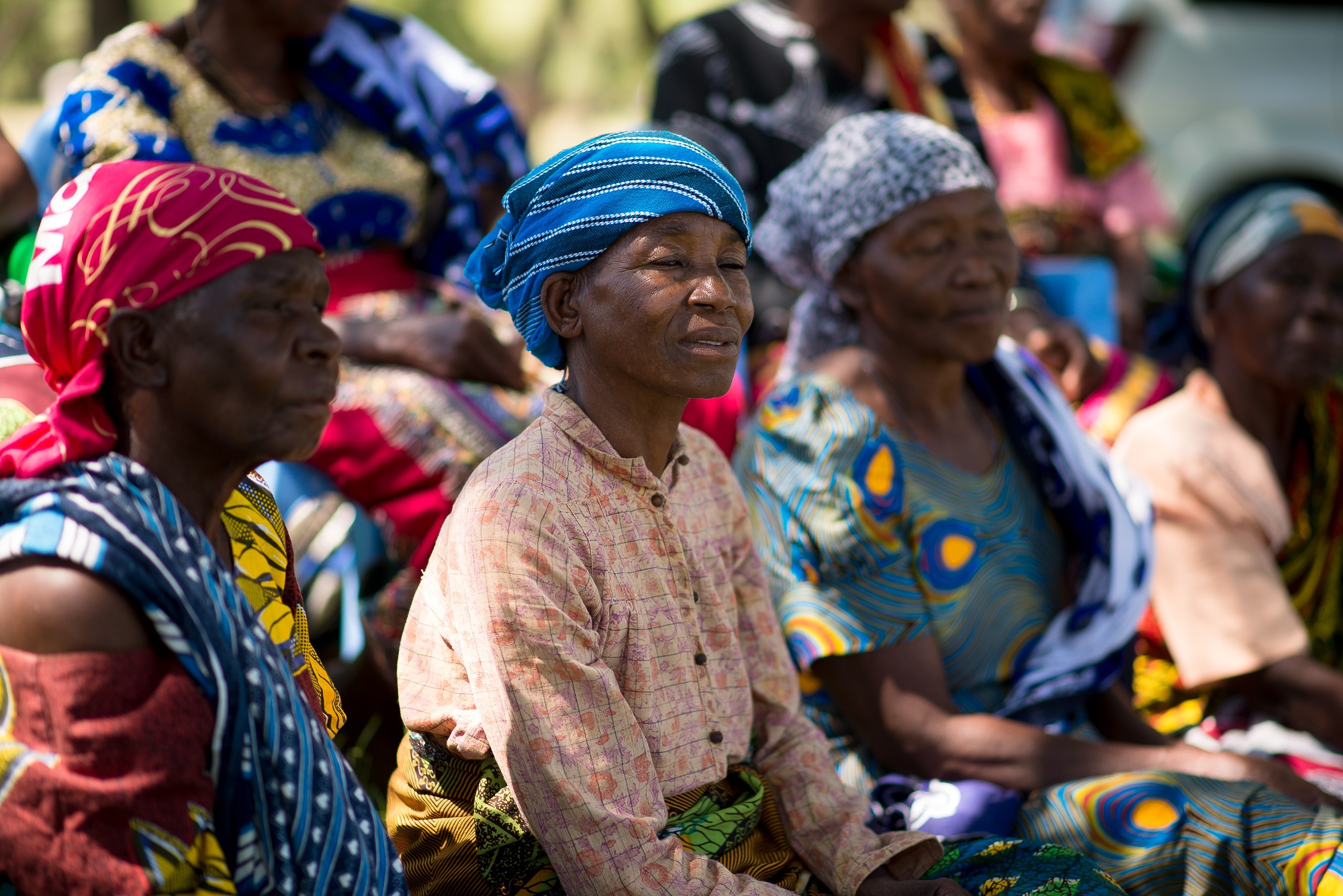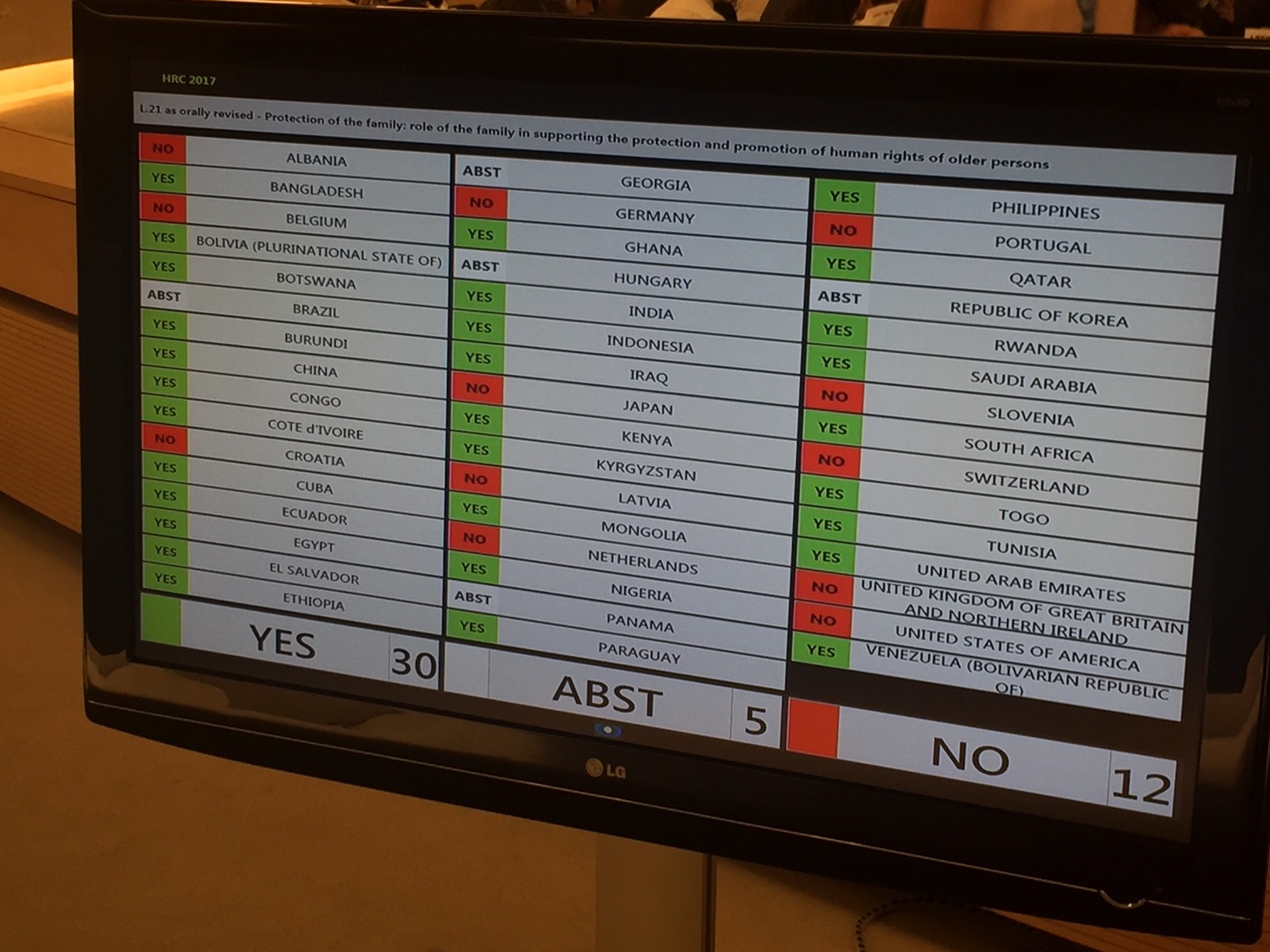
Being forced to retire at the age of 65, being denied credit or loans, falling the wrong side of an upper age limit for cancer screening – these are just some of the ways older age is used to deny us access to services we had the right to up until an arbitrary birthday.
Less obvious, but no less discriminatory, is the prejudicial ageism present in every society. Older people are cast as less equal, less deserving of respect, less part of mainstream society and less capable than people of younger ages.
The international human rights system’s failure to address this has not gone unnoticed. The need for a new international convention that protects and promotes the rights of older people has been the subject of discussion among UN member states for a number of years.
Families and older people’s rights
So you would be forgiven for thinking the resolution adopted last month by the UN Human Rights Council in Geneva would be welcomed by those of us wanting to see an end to ageism and age discrimination. No one would disagree that families and family life are important to billions of us around the world as we get older, including the older people we at HelpAge International work with. Who would not want to see more solidarity between generations, more understanding and harmony?
But rather than being a step towards greater autonomy, respect and equality for older people, the resolution has put these under threat. It does this in a number of ways.
Firstly, it reinforces rather than challenges prejudicial, ageist stereotypes by assuming all older people live within families, which they do not. Families everywhere provide critical support to their older members, but as we age we continue to have the right to choose where and with whom we live.
Secondly, rather than expanding the scope of our lives in older age, the resolution narrows it. It tells us the family is the foremost environment in which older people can develop their potential. This ignores the fact we all have many sides to us beyond our family relationships. It perpetuates ageist norms that tell us we should remove ourselves from the public sphere in older age and restrict our interests, concerns and aspirations to domestic life.
Thirdly, it risks making us more dependent on others. The resolution encourages states to establish social and care services for the whole family and individual carers. This may sound promising. But if resources dedicated to older people’s social security and long-term care and support are given to the whole family and/or care providers, older people themselves have no control or autonomy over how those resources are used. As a result they become more, not less, dependent on family members.
This is completely at odds with fundamental principles of human rights and the consequences can be very damaging. While families can be full of love and joy, they can also be places of control and harm, something the resolution also fails to adequately address by ignoring the sexual violence and harmful traditional practices older people, in particular older women, can be subjected to by family members.
Why are many member states putting an emphasis on families?
Resolutions don’t happen in a political vacuum at the Human Rights Council, and this one on the role of the family in protecting and promoting the rights of family members is one of the most controversial. For the last three years it has focused on a different group that can form part of a family: children, people with disabilities and, this year, older people, but the subjects do not seem to be the primary concern of the states voting for or against it.
The real battle being fought is something quite different.
States promoting the resolution argue the family as an institution is the fundamental unit of society and as such has an important role in protecting the welfare of its vulnerable members. They argue there is no need to acknowledge the diversity of families and that such definitions should be left to each individual state.
On the other hand, states proposing amendments and voting against the resolution are concerned it undermines individuals’ rights, refuses to acknowledge diverse forms of families, and could be used to justify harmful practices within the family.

Despite these threats to equality and the universality of human rights, as you can see above, the resolution was adopted: 30 members of the Human Rights Council voted for it, 12 voted against and five abstained.
Everyone, not just older people, should be worried. We must do all we can to ensure our rights in older age are not held hostage to wider attempts to roll back human rights and are addressed in a more progressive way.
Find out more about our work on rights.
